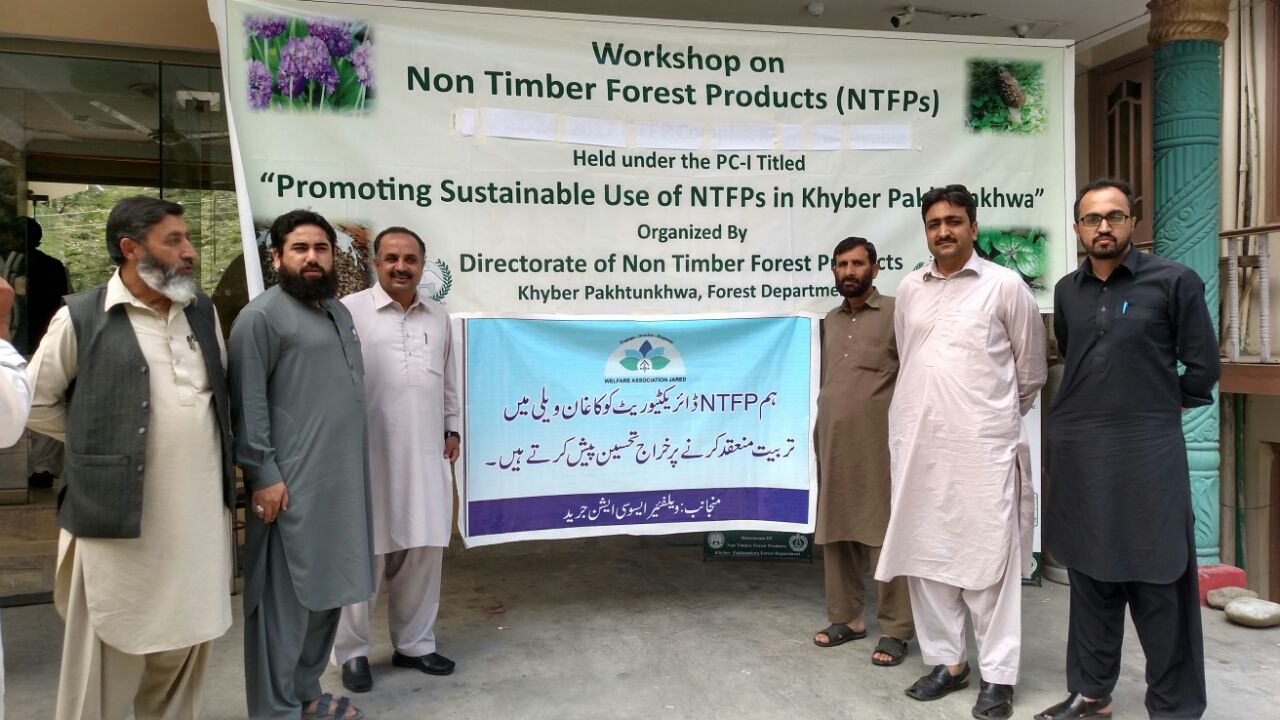Introduction
BACKGROUND AND INCEPTION
 Welfare Association Jared (WAJ) emerged in 1988 as a non-profit and non-governmental Organization (NGO) to work for the basic rights of men, women and deprived and marginalized communities. WAJ actively advocate their livelihood and human rights to bring about the much needed policy and institutional changes in the state structures.
Welfare Association Jared (WAJ) emerged in 1988 as a non-profit and non-governmental Organization (NGO) to work for the basic rights of men, women and deprived and marginalized communities. WAJ actively advocate their livelihood and human rights to bring about the much needed policy and institutional changes in the state structures.
In 1992, Welfare Association Jared (WAJ) implemented a program for disaster relief assistance to the victims of the flash floods in the Kaghan valley of Mansehra District. This provided an opportunity to WAJ to reach the most marginalized citizens. Through its network of Communities Organizations (Cos) and the hard works of its volunteers, WAJ successfully provided food and non-food items, emergency health support to the poor flood affectees. This was a key milestone and catalyst in WAJ history as it provided the organization the opportunity to directly realize the potential of community organization. The success of this program was a key factor in galvanizing support for WAJ brand of community-based policy advocacy for empowering the marginalized.
WAJ realized its full potential in including humanitarian and development work in its scope in order to complement its rights-advocacy focus. A strategic plan was developed with Sungi increasing its outreach to the marginalized villages of District Mansehra. Since its inception, WAJ advocacy work and influence have reached far beyond its district. WAJ joined various advocacy and human rights network across the country.
Disrupting the status quo to enable the marginalized did not go without its serious challenges in Pakistan. WAJ with the close collaboration of Sungi and other likeminded civil society organization started work on the rights of forest dwellers created waves with the entrenched forest mafia who openly intimidated and threatened WAJ and Sungi’s leadership to stop organizing villages in forested area. However Sarhad Awami Forestry Itihad (SAFI), an alliance of forest dwellers was formed and WAJ become member along with Sungi joined the policy makers in formulating the Sarhad Forest Conservation Strategy..
In 1992 as WAJ grew its network of communities, it continued to face strong resistance from vested interests. This opposition was particularly strong in Mansehra District, against Sungi’s work in raising awareness and organizing women and the marginalized communities’. Work continued because there was equally strong support from the local population, from both the men and women of the deprived villages. Concurrently, Friday sermons in mosques near Sungi offices would spout hatred against work of NGOs instigating people to attack. This created an extremely challenging environment, and staff was constantly forced to take precautionary measures.
WAJ increased contact with communities brought out the demand for sustained development support. At the same time, the organization realized that a number of human factors were responsible for aggravating the devastation of flooding, particularly poor Natural Resource Management (NRM). WAJ established networks of village organization (VOs) of both men and also women, first time in the history of area. A supreme council of elders and ex-councilors was formed to guide WAJ in political matters.
When leader of Sungi Omar Asghar Khan (late) was instrumental in bringing together rights-based civil society organizations on a common platform called the Advocacy Development Network (ADN), WAJ welcomed the idea and joined the platform as a member organization. WAJ also joined extensive series of People’s Assemblies undertaken by Sungi to provide space for the public to reflect on and debate issues which concerned them directly but which they had not been able to voice given the absence of a democratic culture, giving them no role in the decisions enforced upon.
WAJ with the support of Sungi and other donors adopted a social mobilization approach for program implementation: Sustainable Livelihoods (Micro Finance and Enterprise Development, Natural Resource Management and Craft Skills Development), Social Sector (Health and Community Infrastructure), Policy Advocacy and Human Resource Development programs were implemented as a major partner of Sungi.
WAJ played very effective role in Local Government (LG) election 2001 and 2005 and motivated women take part in LG election as contestant first time in the history of valley. With the assistance of TVO,CIDA,BHC,FNF,UNDP and other donors, WAJ with the support of Sungi initiated an integrated Community Support Program, while sustaining its policy of advocacy initiatives. By 1997, WAJ had gained sufficient experience in community development and local and policy advocacy. The organization enjoyed respect and confidence of the civil society
The massive earthquake of October 2005 in WAJ working area was a major turning point for the organization. Other civil society members, local and international organizations working on the relief efforts came to support disaster hit area. WAJ implemented a massive relief program in the area by developing and deploying human and social capital on the ground and leveraging its already established huge network in the region.